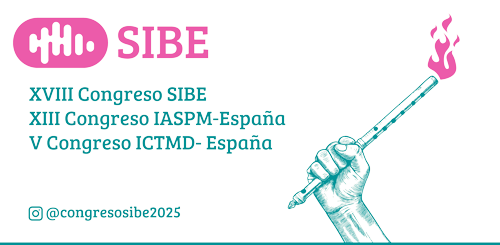Este trabalho explora a organização comunitária do lazer como forma de resistência na éter [nome fictício], uma rave queer do-it-yourself (DIY) realizada em Lisboa. A partir de uma abordagem (auto)etnográfica, examina-se a paisagem de cuidados da festa enquanto dispositivo de reprodução social do coletivo queer da cidade. As dinâmicas de autogestão e redistribuição do cuidado na rave queer (inseridas no quadro da critical rave) são compreendidas a partir da interligação das práticas expressivas do techno-musicking — mediadas por categorias musicais incluídas numa definição abrangente de música eletrónica de dança (EDM) — com um horizonte de autonomização do prazer que envolve também as práticas eróticas e farmacológicas — informadas por noções de positividade sexual (e corporal) e de redução de danos. Por sua vez, a éter é estudada como espaço de produção de alianças políticas em oposição ao contexto de transformação urbana de Lisboa — que comporta processos de gentrificação, turistificação, higienização e despossessão material e cultural das comunidades locais. A rave queer configura-se, assim, como um laboratório de assemblages (tecno-bio)políticas onde as estratégias de opacidade, desidentificação e hedonismo são interpretadas enquanto orientações heterotópicas que podem conduzir para a construção de um espaço de resistência.
Ahmed, Sarah. 2006. Queer Phenomenology: Orientations, Objects, Others. Durham: Duke University Press.
Avis-Ward, Daisy. 2022. «Moments of Connection As Means of Survival: A Study of Queer Identity, Freedom and Community in UK Raves During the Covid-19 Pandemic».
Dancecult: Journal of Electronic Dance Music Culture 14 (1): 39–59.
https://doi.org/10.12801/1947-5403.2022.14.01.03.
Bataille, Georges. 1987. O erotismo. Traduzido por Antonio C. Viana. Porto Alegre: L&PM.
Bell, David, e Gill Valentine, eds. 1995. Mapping Desire: Geographies of Sexualities. Londres: Routledge.
Butler, Judith. 2016. «Rethinking Vulnerability and Resistance». Em Vulnerability in Resistance, editado por Judith Butler, Zeynep Gambetti, e Leticia Sabsay, 12–27. Durham: Duke University Press.
Edelman, Lee. 2004. No Future: Queer Theory and the Death Drive. Durham: Duke University Press.
Foucault, Michel. 2013. O corpo utópico, as heterotopias. Traduzido por Salma Tannus Muchail. São Paulo: n-1 edições.
Furman, Adam N., e Joshua Mardell, eds. 2022. Queer Spaces: An Atlas of LGBTQIA+ Places and Stories. Londres: RIBA.
Gaimes, Wanda, e marum. 2021. «Rave Rave Revolution». Em Danceolitics, editado por Kasia Wolińska, 125–45. Berlim: Uferstudios GmbH.
Gamboa, Eddie. 2021. «Pedagogies of the Dark: Making Sense of Queer Nightlife». Em Queer Nightlife, editado por Kemi Adeyemi, Kareem Khubchandani, e Ramón H. Rivera-Servera, 91–100. Ann Arbor: University of Michigan Press.
Garcia-Mispireta, Luis Manuel. 2023. Together, Somehow: Music, Affect and Intimacy on the Dancefloor. Durham: Duke University Press.
Glissant, Édouard. 2011. Poética da relação. Traduzido por Manuela Mendonça. Lisboa: Sextante.
Gómez-García, Juan S. 2023. «A body changed: Body transformations, movement, and space on queer techno-dance floors». Dissertação de Mestrado, Tronheim: Norwegian University of Science and Technology.
Grosz, Elizabeth. 1995. Space, Time and Perversion: The Politics of Bodies. St Leonards: Allen & Unwin.
Hae, Laam. 2012. The Gentrification of Nightlife and the Right to the City: Regulating Spaces of Social Dancing in New York. Abingdon: Routledge.
Ingram, Gordon Brent, Anne-Marie Bouthillette, e Yolanda Retter, eds. 1997. Queers in Space: Communities, Public Places, Sites of Resistance. Seattle: Bay Press.
Khaleli, Jasemin. 2021. «Queering the urban politics of transformation? Lisbon's Techno-Spaces between Precarization and Self-Empowerment». Dissertação de Mestrado, Viena: Universität Wien.
Malatino, Hil. 2020. Trans Care. Minneapolis: University of Minnesota Press.
Malet-Calvo, Daniel, Jordi Nofre, e Miguel Geraldes. 2017. «The Erasmus Corner: place-making of a sanitised nightlife spot in the Bairro Alto (Lisbon, Portugal)».
Leisure Studies 36 (6): 778–92.
https://doi.org/10.1080/02614367.2016.1271821.
Mendes, Luís. 2017. «Gentrificação turística em Lisboa: neoliberalismo, financeirização e urbanismo austeritário em tempos de pós-crise capitalista 2008-2009».
Cadernos Metrópole 19 (39): 479–512.
https://doi.org/10.1590/2236-9996.2017-3906.
Muñoz, José E. 1999. Disidentifications: Queers of Color and the Performance of Politics. Minneapolis: University of Minnesota Press.
———. 2019. Cruising Utopia: The Then and There of Queer Futurity. Nova Iorque: New York University Press.
Nofre, Jordi, Íñigo Sánchez-Fuarros, João C. Martins, Patrícia Pereira, e Isabel Soares. 2017. «Exploring Nightlife and Urban Change in Bairro Alto, Lisbon».
City & Community 16 (3): 330–44.
https://doi.org/10.1111/cico.12248.
Pienaar, Kiran, Dean A. Murphy, Kane Race, e Toby Lea. 2020. «Drugs as technologies of the self: Enhancement and transformation in LGBTQ cultures».
International Journal of Drug Policy 78:1–9.
https://doi.org/10.1016/j.drugpo.2020.102673.
Pires, Cristiana Vale, Manuel Garcia-Ruiz, Filipe Couto Gomes, e Jordi Nofre. 2024. «A century of queerness after dark: A socio-historical review of lesbian, gay, bisexual, transgender and queer nights in Lisbon (1920–2020)».
Sexualities 0 (0): 1–19.
https://doi.org/10.1177/13634607241287425.
Pires, Cristiana Vale, Filipe Couto Gomes, João Caldas, e Mar Cunha. 2022. «Chemsex in Lisbon? Self-Reflexivity to Uncover the Scene and Discuss the Creation of Community-Led Harm Reduction Responses Targeting Chemsex Practitioners».
Contemporary Drug Problems 49 (4): 434–52.
https://doi.org/10.1177/00914509221094893.
Preciado, Paul B. 2022. Testo yonqui: sexo, drogas y biopolítica. Barcelona: Anagrama.
Race, Kane. 2009. Pleasure Consuming Medicine: The Queer Politics of Drugs. Durham: Duke University Press.
Roth, Alec. 2023. «Drugs Risk Pleasure: Care in Lisbon's Queer Techno Scene». Dissertação de Mestrado, Viena: Universität Wien.
Teixeira Costa, Guilherme, Otávio Raposo, João C. Martins, Manuel Garcia-Ruiz, e Jordi Nofre. 2022. «Lazer noturno e resistências juvenis em tempos de (pós-)pandemia: o caso dos jovens do bar Antù em Lisboa».
Revista Antropolítica 54 (3): 118–42.
https://doi.org/10.22409/antropolitica2022.33.
The Care Collective, ed. 2020. The Care Manifesto: The Politics of Interdependence. Londres: Verso.
Ueno, Toshiya. 2003. «Unlearning to Raver: Techno-Party as the Contact Zone in Trans-Local Formations». Em The Post-subcultures Reader, editado por David Muggleton e Rupert Weinzierl, 101–17. Oxford: Berg.
Wark, McKenzie. 2023. Raving. Durham: Duke University Press.
Zebracki, Martin. 2016. «Embodied Techno-Space: An Auto-Ethnography on Affective Citizenship in the Techno Electronic Dance Music Scene».
Emotion, Space and Society 20:111–16.
https://doi.org/10.1016/j.emospa.2016.03.001.

 PDF version
PDF version
